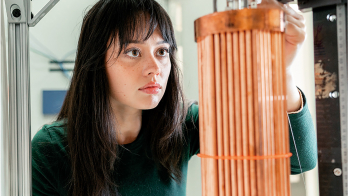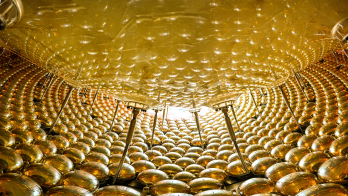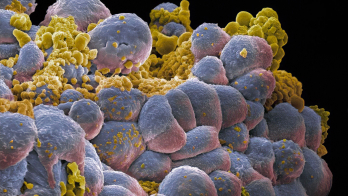6th Conference of Technology and Instrumentation in Particle Physics.

The Conference of Technology and Instrumentation in Particle Physics (TIPP) is the largest conference of its kind. The sixth edition, which took place in Cape Town from 4 to 8 September 2023 and attracted 250 participants, was the first in Africa. More than 200 presentations covered state-of-the-art developments in detector development and instrumentation in particle physics, astroparticle physics and closely related fields.
“As South Africa, we regard this opportunity as a great privilege for us to host this year’s edition of the TIPP conference,” said minister of higher education, science and innovation Blade Nzimande during an opening address. He was followed by speeches from Angus Paterson, deputy CEO of the National Research Foundation, and Makondelele Victor Tshivhase, director of the national research facility iThemba LABS.
The South African CERN (SA–CERN) programme within the National Research Foundation and iThemba LABS supports more than 120 physicists, engineers and students that contribute to the ALICE, ATLAS and ISOLDE experiments, and to theoretical particle physics. The SA–CERN programme identifies technology transfer in particle physics as key to South African society. This aligns symbiotically with the technology innovation platform of iThemba LABS to create a platform for innovation, incubation, industry collaboration and growth. For the first time, TIPP 2023 included a dedicated parallel session on technology transfer, which was chaired by Massimo Caccia (University of Insubria), Paolo Giacomelli (INFN Bologna) and Christophe De La Taille (CNRS/IN2P3).
The scientific programme kicked off with a plenary presentation on the implementation of the ECFA detector R&D roadmap in Europe by Thomas Bergauer (HEPHY). Other plenary presentations included overviews on bolometers for neutrinos, the Square Kilometre Array (SKA), technological advances by the LHC experiments, NaI experiments, advances in instrumentation at iThemba LABS, micro-pattern gaseous detectors, inorganic and liquid scintillator detectors, noble liquid experiments, axion detection, water cherenkov detectors for neutrinos, superconducting technology for future colliders and detectors, and the PAUL facility in South Africa.
A panel discussion between former CERN Director-General Rolf Heuer (DESY), Michel Spiro (IRFU) and Manfred Krammer (CERN), Imraan Patel (deputy director general of the Department of Science and Innovation), Angus Paterson and Rob Adam (SKA) triggered an exchange of insights about international research infrastructures such as CERN and SESAME for particle physics and science diplomacy.
Prior to TIPP2023, 25 graduate students from Botswana, Cameroon, Ghana, South Africa and Zambia participated in a school of instrumentation in particle, nuclear and medical physics held at iThemba LABS, comprising lectures, hands-on demonstrations, and insightful presentations by researchers from CERN, DESY and IJCLAB, which provided a global perspective on instrumentation.








